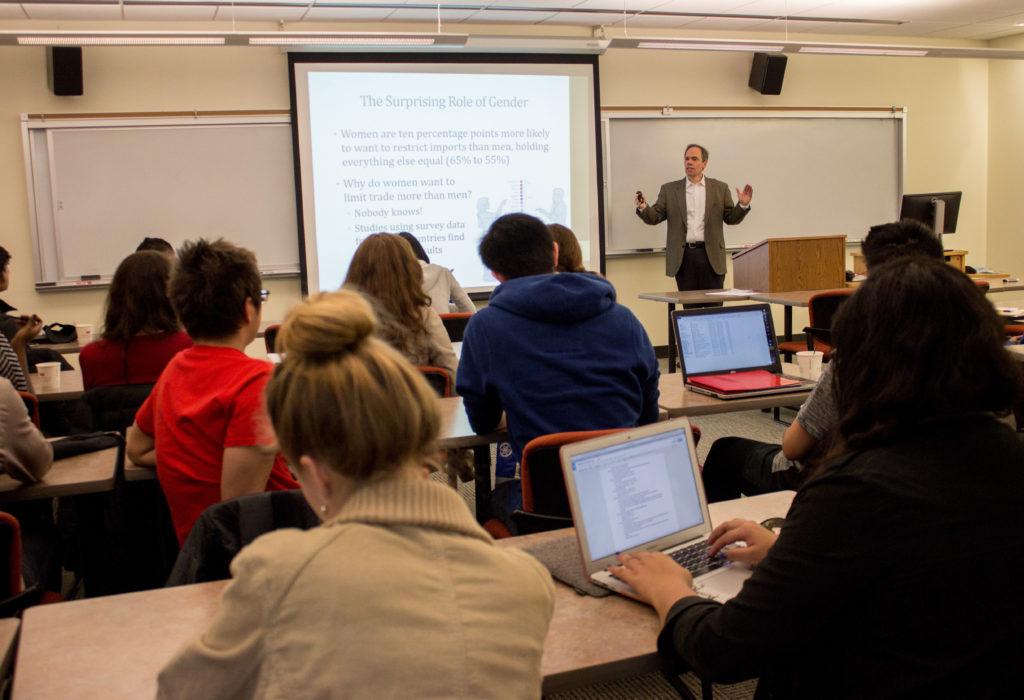
Bruce Blonigen, Philip H. Knight Professor of Social Science at the University of Oregon, gave a talk entitled “Gender and Trade Policy” on Tuesday, Feb. 28. He discussed trade policies and the impact of gender on different views of trade policies, both among the general population and among legislators in the U.S.
Blongien discussed how gender is a factor in terms of how the individual views trade policy.
“The basis of the talk today is how do people decide how they feel about trade policy … It turns out that there’s much we don’t know why certain characteristics affect trade policies, and what I found is that gender is a really big impact,” he said. “Controlling all the other things, when two people have the same education level, same income level, [are affiliated with the] same political party, live in the same location and they are both head of households, the data would say that if it’s a woman versus a man and all those characters are the same, if gender is different, there is a very big difference in the likelihood of what they will say [about trade policy].”
According to a model provided by economist Dani Rodrik, both individual preferences and policy maker preferences will ultimately affect the outcome of trade policies. Blonigen talked about the preferences of both women in the general public and the woman legislators in his lecture.
“There is a really surprising role of gender here, and [the difference] is big,” Blonigen said, presenting data from a survey. “Women will be more likely to support limiting trade by 10 percentage points.”
He explained the gender differences from a behavioral approach, arguing that women are less likely to choose risky options, as well as less likely to be overconfident and to choose competition.
Blonigen also provided another hypothesis, though it is supported by limited literature. “I do think that there is a working hypothesis that women care more about equity than efficiency,” he said.
For women legislators, it turned out that there are no gender preferences on votes concerning international trade, according to the research he is doing for a paper.
“That means the median voter model wins, although part of it might be that, especially in times early on in our sample, there were very few women legislators, and still, they are in minority by quite a bit,” Blonigen said. “So you wonder if the type of women that run for elections like competition, and maybe they are not like average women in the public population.”

















































